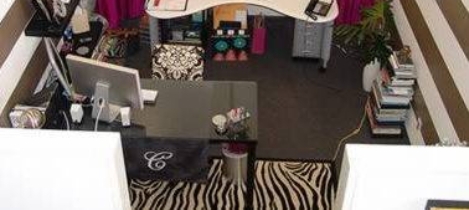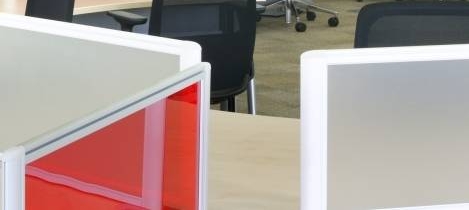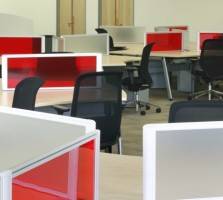August 10, 2016
The solution to closing the digital skills gap starts at home 0
 Much has already been written about the UK’s digital skills gap, and undoubtedly as the Government continues to develop and roll out its Digital Strategy for the nation, many more headlines will be devoted to it. For a country so focused on technological development it’s a problem which is both acute and imperative. Recent Government figures put 12.6 million Britons at risk of being left behind in terms of the skills needed for a modern economy. Parliamentary plans to address this issue focus firmly on education: including digital development as a key part of apprenticeships, encouraging vocational digital skills courses at universities, and broadening access to other educational courses to help people to learn to code. However, responsibility to upskill the nation’s workforce also resides with employers. Whether the current role demands IT skills or not, technology increasingly impacts and transforms every element of our lives.
Much has already been written about the UK’s digital skills gap, and undoubtedly as the Government continues to develop and roll out its Digital Strategy for the nation, many more headlines will be devoted to it. For a country so focused on technological development it’s a problem which is both acute and imperative. Recent Government figures put 12.6 million Britons at risk of being left behind in terms of the skills needed for a modern economy. Parliamentary plans to address this issue focus firmly on education: including digital development as a key part of apprenticeships, encouraging vocational digital skills courses at universities, and broadening access to other educational courses to help people to learn to code. However, responsibility to upskill the nation’s workforce also resides with employers. Whether the current role demands IT skills or not, technology increasingly impacts and transforms every element of our lives.











 It is no longer a question of whether one of the world’s major economies will introduce a universal basic income for all of its citizens, but when. Over the weekend, the leader of the UK’s Labour Party Jeremy Corbyn announced in
It is no longer a question of whether one of the world’s major economies will introduce a universal basic income for all of its citizens, but when. Over the weekend, the leader of the UK’s Labour Party Jeremy Corbyn announced in 
 We’re operating in an increasingly tech-centric environment, but human talent still remains one of the core differentiators if a business is to thrive. Not surprisingly, the mission to get the very best people on board and optimise the potential of those already in situ has become the Holy Grail for many companies, irrespective of scale and sector – a challenge that demands a more intuitive and precise, even scientific approach to human capital management. Data analytics is a case in point, designed to extrapolate insight from intelligence across a variety of disparate sources and establish actionable intelligence, capabilities which naturally lend themselves to powering key decisions around hiring and retention and building on existing talent. Yet despite the proliferation of analytics across many strands of the workplace, take up in the HR sphere remains relatively modest, in tandem with a long-held reticence over the use of the technology in this area.
We’re operating in an increasingly tech-centric environment, but human talent still remains one of the core differentiators if a business is to thrive. Not surprisingly, the mission to get the very best people on board and optimise the potential of those already in situ has become the Holy Grail for many companies, irrespective of scale and sector – a challenge that demands a more intuitive and precise, even scientific approach to human capital management. Data analytics is a case in point, designed to extrapolate insight from intelligence across a variety of disparate sources and establish actionable intelligence, capabilities which naturally lend themselves to powering key decisions around hiring and retention and building on existing talent. Yet despite the proliferation of analytics across many strands of the workplace, take up in the HR sphere remains relatively modest, in tandem with a long-held reticence over the use of the technology in this area.

 1 The next big thing in office design is not what you think but is certainly a sign of the times, according to a story in Inc; it is
1 The next big thing in office design is not what you think but is certainly a sign of the times, according to a story in Inc; it is 
 There is a lurid headline in today’s Telegraph proclaiming that ‘Working in an office is as bad as smoking’. It’s been picked up by a number of other news outlets, has been splashed all over search engines and will no doubt join
There is a lurid headline in today’s Telegraph proclaiming that ‘Working in an office is as bad as smoking’. It’s been picked up by a number of other news outlets, has been splashed all over search engines and will no doubt join 
 How many people in the workplace genuinely trust their managers and employers? It’s a question that we should ask because the answer unfortunately is not as many as you might think. It’s almost certainly well below what an organisation supposes or expects. For example, a recent
How many people in the workplace genuinely trust their managers and employers? It’s a question that we should ask because the answer unfortunately is not as many as you might think. It’s almost certainly well below what an organisation supposes or expects. For example, a recent 
 In America at least, the great symbol of corporate conformity is the office cubicle. Satirised in the Dilbert cartoons and a staple in any movie about the degrading aspects of modern working life, the cubicle provides a perfect shorthand way of portraying an individual crushed by the corporate jackboot. Yet what these things miss is the propensity of people to personalise their surroundings and claim a space as their own, even if only for the short time they may be there. This seems to be particularly the case when it comes to office design and so we were much taken with
In America at least, the great symbol of corporate conformity is the office cubicle. Satirised in the Dilbert cartoons and a staple in any movie about the degrading aspects of modern working life, the cubicle provides a perfect shorthand way of portraying an individual crushed by the corporate jackboot. Yet what these things miss is the propensity of people to personalise their surroundings and claim a space as their own, even if only for the short time they may be there. This seems to be particularly the case when it comes to office design and so we were much taken with 


 UK growth had already eased from around 3 percent in 2014 to around 2 percent before the EU referendum due primarily to slower global growth, but the Brexit vote to leave the EU is likely to lead to a significant further slowdown. UK GDP growth is forecast to decelerate to around 1.6 percent in 2016 and 0.6 percent in 2017 according to
UK growth had already eased from around 3 percent in 2014 to around 2 percent before the EU referendum due primarily to slower global growth, but the Brexit vote to leave the EU is likely to lead to a significant further slowdown. UK GDP growth is forecast to decelerate to around 1.6 percent in 2016 and 0.6 percent in 2017 according to 








August 15, 2016
The traditional office is still very much alive, but it is changing 0
by Alex Gifford • Comment, Wellbeing, Workplace design
(more…)